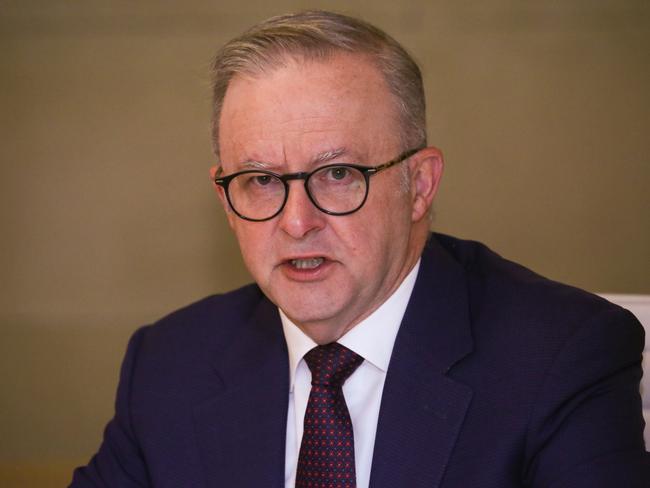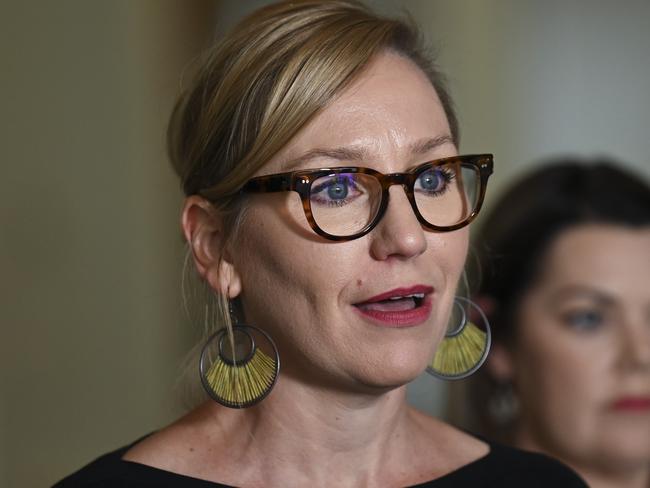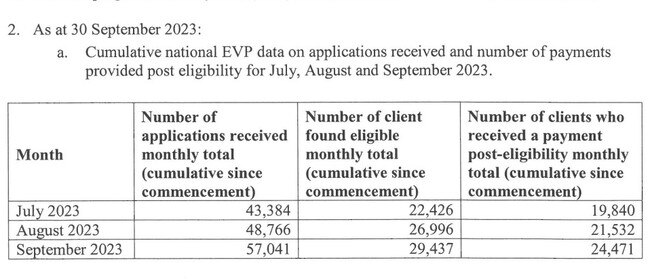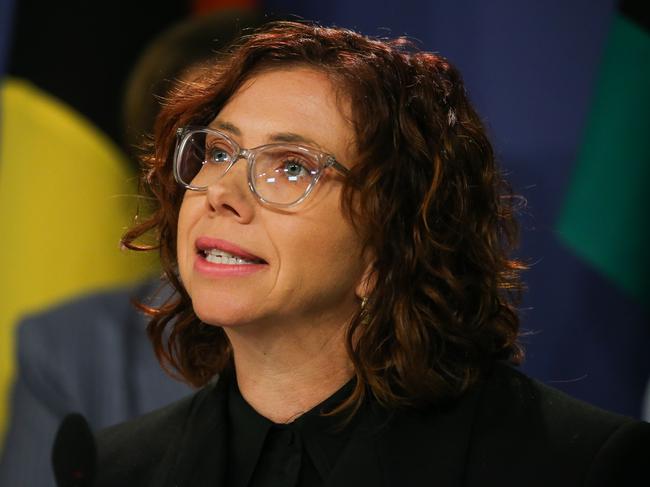‘Abuse or poverty’: $5k domestic violence payment leaves victim-survivors impossible choice
Anthony Albanese’s announcement of a one-off payment for domestic violence victims leaves them an impossible choice: abuse or poverty.
Lifestyle
Don't miss out on the headlines from Lifestyle. Followed categories will be added to My News.
Like many Australians, Greens Senator Larissa Waters had hoped this week’s snap national cabinet meeting to discuss gender-based violence would mark a turning point in the way leaders have historically dealt with an issue that’s seen one woman die every four days this year.
The alleged murders of Joan Drane, Erica Hay, Emma Bates, Molly Ticehurst, Tara Morrison and Hannah McGuire – in the month of April alone – hadn’t been enough.
Nor had the rallies – attended last weekend by tens of thousands of people across the country – that called for the violence that killed those women to end, or the tireless years of work by advocates and chronically-underfunded frontline services.
Perhaps this meeting would finally be it.
“I thought this might be the moment that governments start to listen and do what’s really needed, rather than tokenistic, small gestures,” Senator Waters told the ABC on Thursday morning.
Instead, the headline promise from Wednesday’s gathering was for Prime Minister Anthony Albanese to throw more money at permanently establishing a trial program set up his predecessor, Scott Morrison, in October 2021 – one that encourages victim-survivors to engage with frontline support services, but is yet to provide any funding for the actual services themselves.

“There was nothing for frontline services, who are really doing that heavy lifting to support women when they flee violence. There was nothing on new money for prevention,” Senator Waters told the ABC on Thursday morning.
“We know that at least 28 women have been killed this year, which is almost double what we saw at this time last year. So we know what we’re doing is not working, and yet there was no acknowledgment of that.
“There was no big thinking, there was no big dollar for women – and yet we saw last week there was $50 billion (allocated) for defence.”
Despite Mr Albanese’s emphasis on “acting with urgency” to end violence against women and children once and for all, his almost-billion dollar investment also doesn’t start for another 14 months.
From next July, over five years, the Government will invest $925.2 million into the Leaving Violence Program (formerly known as the Escaping Violence Program).
Under the scheme, women who are fleeing male violence can access a one-off $5000 emergency assistance payment through social service provider UnitingCare Network, of which $1500 is in cash and $3500 comes on a prepaid card for goods and services.
It also gives victim-survivors access to safety planning, risk assessment and referrals to other essential services for up to 12 weeks.
It is nowhere near enough. Research by the Australian Council of Trade Unions (ACTU) in 2017 found it takes a victim-survivor, on average, $18,000 and 141 hours to extricate themselves from a violent relationship.
Seven years later, that cost is no doubt much higher.
Financial insecurity is “absolutely one of the key barriers that victim-survivors face when they contemplate leaving an abusive relationship”, Monash University Business and Economics Professor Kate Fitz-Gibbon told news.com.au.
“For far too many victim-survivors who experience financial insecurity, leaving an abusive relationship requires them to make the choice between living with abuse or living in poverty,” Dr Fitz-Gibbon said.
“It is unclear how the single payment program, announced by the government this week, will support the long-term safety needs of victim-survivors.”

Since its inception three years ago, the scheme has “been plagued with maladministration and delays”, Sen Waters said, while Independent MP Zoe Daniels described it as “difficult to access” and in desperate need of streamlining.
Data released in January in response to a question raised during Senate Estimates revealed that more than half of the over 50,000 Australians who applied for the payment had their applications rejected between July and September 2023 alone. During that period, 57,041 applications were made, but only 29,437 were found eligible, The Guardian reported.
To be eligible, an individual must be 18 or older, and have left or plan to leave a violent, intimate partner relationship. Applicants must be residing in Australia as a citizen, resident or temporary visa holder and be able to prove they are experiencing financial stress. They must also have experienced a change in living arrangement as a result of intimate partner violence in the three months prior, and not have received the EVP payment in the past 12 months.
Asked what will be done to ensure this does not remain a trend going forward, Social Services Minister Amanda Rishworth told news.com.au that “clients assessed to be ineligible are not turned away from the program and are referred to other support services which are appropriate for their situation”.

A response from the Department of Social Services, provided to Senate Estimates, noted that while Uniting “does not collect data on the specific reasons why applications do not proceed”, the most common reasons were because “eligibility criteria was not met”, contact with Uniting was not maintained, or the applicant was uncontactable.
“In some of these latter cases, the applicant may have returned to the relationship or otherwise determined not to proceed with the application,” it said.
Ms Rishworth said that the (on average) month-long wait for victim-survivors to access the EVP trial under the Coalition Government was also “unacceptable”.
“Since I took on the Social Services portfolio, our Government has already significantly reduced the time it takes victim-survivors to access financial and other support, because it was taking victim-survivors too long to access this support,” Ms Rishworth said.
“One of my first meetings as Minister for Social Services was about this payment and how we could reduce wait times … We significantly reduced this wait time and will continue to look for improvements to the service with the continuation of the EVP trial through to mid-next year and with the Leaving Violence Program that will begin then.”

The fact remains, however, that the “financial and other support” services Ms Rishworth mentioned lack the adequate funding to respond to the demand accessing this payment will create.
A $925.2 million investment into a single aspect of addressing a problem that Women in Economics Network chair Angela Jackson has said costs $50 billion a year in lost output is far too little.
“We are hearing loud and clear from the sector that they are underfunded and cannot meet demand,” Dr Fitz-Gibbon said.
“It is essential that victim-survivors who leave an abuser can access the vital specialist services and housing services required to ensure their safety.
“Greater investment in frontline specialist services is critically needed. We have a government that has acknowledged that men’s violence against women is a national crisis. Now we need them to fund the services so desperately needed by those experiencing domestic, family and sexual violence.”
Originally published as ‘Abuse or poverty’: $5k domestic violence payment leaves victim-survivors impossible choice





